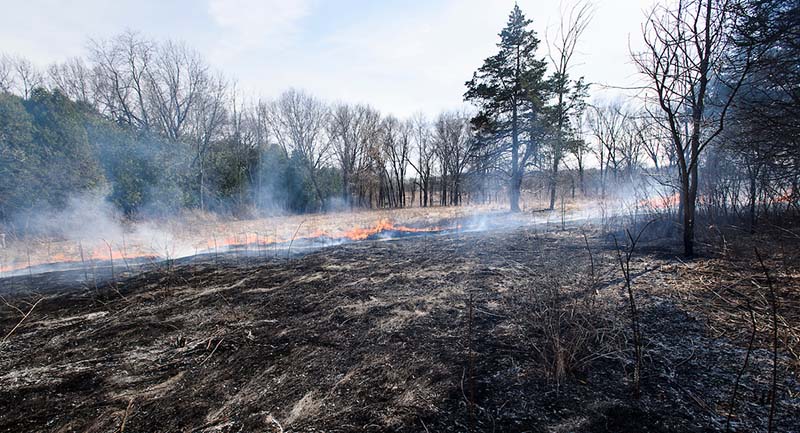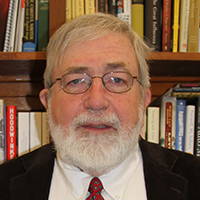
ENVIR ST 400 LEC 004
Tuesday/Thursday, 2:25–3:15 p.m.
2 credits
Instructor

Paul Zedler
Professor of Environmental Studies
phzedler@wisc.edu
Course Description
Fire has been an element of terrestrial ecology ever since the air oxygenated and there was dry biomass to burn. The adaptations to fire that we see across the world in fire-prone natural ecosystems are evidence of the degree to which fire has shaped the earth’s biota.
One species in particular — Homo sapiens — has benefitted by being able to ignite fires, and use fire for a variety of useful purposes. One of these was to modify local fire regimes and to reshape the vegetation. The Agricultural Revolution and the exponential increase of humans caused large shifts in fire, generally decreasing the frequency of wildfires, but increasing the purposeful use of fire as means of clearing land and burning off agricultural debris.
At present, humans have a complex relation to fire. There is a general societal consensus that we should preserve forests and natural shrublands for their environmental services; and a somewhat weaker consensus that we should also preserve flammable vegetation for the biodiversity they contain. This, combined with the expansion of urban and suburban development has resulted in wildfires causing the destruction of property and loss of life.
In the last decade, the frequency and size of wildfires in the western states have both increased. It is widely believed that these fires and the drought cycles that create the conditions for them, are evidence of ongoing climate change. In the Upper Midwest, large wildfires are rare, but a desire to manage remnant areas and restore other sites has stimulated the widespread use of fire in vegetation management. Wildfire and management fire therefore remain a topic of political, social, and ecological interest in all parts of the country.
In this seminar (ENVIR ST 400/900) we will explore, as much as possible with limited numbers and only a semester, the full range of fire-related topics, with an emphasis on fire as a natural disturbance and a management tool. The seminar should be of interest to anyone who contemplates a career in natural resources, or for anyone who just wishes to know more about this important socio-ecological topic.
Students will be expected to present an oral seminar, and prepare an end-of-semester paper based on the topic of their talk. In addition, there will be class discussions and some group work.
Prior coursework in ecology recommended.
Fulfills Environmental Studies
![]()
Theme
UW Designations
![]()
Intermediate
![]()
Biological Science